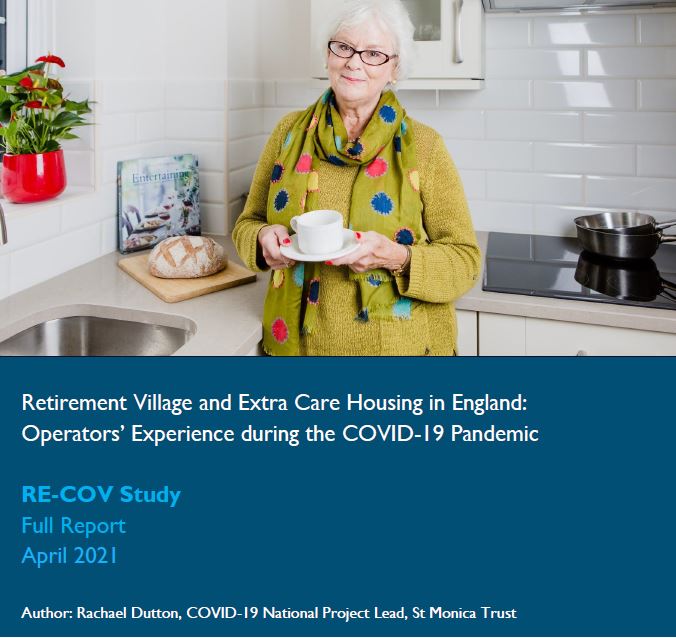The findings of this study, published today and carried out by St Monica Trust, supported by the Housing LIN and funded by the Dunhill Medical Trust, make essential reading on how the sector mobilised quickly to respond to COVID-19 related deaths in their schemes last year, especially when much of the spotlight was on the crisis in care homes at that time. We at the Dunhill Medical Trust were delighted to be able to support this piece of work for a sector that had received much less attention by government during the COVID crisis and it demonstrates the huge efforts and contribution made by the sector in keeping its residents safe.
In order to keep their residents physically, mentally and emotionally well, operators and staff demonstrated great commitment, ingenuity and resourcefulness. As well as offering constant COVID-19-related guidance and support, they provided an extensive amount of additional help, facilities and resources. Such activities and support would have helped to alleviate some of the negative effects of the pandemic, which older people in the general community also were experiencing, such as loneliness, worry and boredom.
Rachael Dutton, Principal Researcher, St Monica Trust
The study highlighted the favourable experience of many residents living in Retirement Villages and Extra Care Housing during the pandemic. (You can read more about that in a blog written for us by the Chair of Lark Hill Village’s Residents’ Association, Roger Turner which highlights the residents’ contribution to the outcomes). Positive outcomes for residents included high levels of feeling safe, supported, and comforted knowing other people were around, plus enjoyment from organised outdoor activities.
However, the huge strain that the COVID-19 pandemic placed on operators was also acknowledged by all the research participants. These included:
- The financially damaging impact of the pandemic for Retirement Villages and Extra Care Housing Operators, with many of the additional costs and losses are still on-going. The estimated overall losses up to February 2021 for the group of 38 operators who participated in the study was -£12.5 million.
- That operators experienced similar pressures to care homes (such as difficulty accessing PPE and financial support, anxiety, stress, staff burn out, numbers of staff off work self-isolating or shielding) but received less guidance and support.
- The low visibility of the sector, with more than half of operators saying they had encountered issues due to local health and social services not fully understanding what retirement villages and extra care housing offer, or how they operate.
- Lack of consideration and support from central government including no guidance specific to housing-with-care until very late on and barely any testing available for staff until November and December 2020.
- Managing the balance of risk and independence to strike a balance between maintaining the individual rights and freedoms of residents, whilst maximising the safety of those living and working in the village. and scheme communities.
You can read the full report by going to the St Monica Trust website. A full range of tools and information are also available on the Housing LIN website.
A depressingly recurring theme of the scientific commentary of recent months is that COVID won’t be the last pandemic we’ll experience. It’s therefore essential that we learn the lessons of this one so that we’re better prepared. The only way we’ll do that is for organisations – however they are funded and owned: private, public or third sector – to work together openly and in the interests of the individuals they serve to share experiences and information. That’s why we’re delighted to have been able to support this piece of research (spanning both publicly and privately funded providers) and to share it. We hope that this contribution to the growing body of evidence around the impact of the pandemic, and sharing the solutions that work, will not only be useful to providers who put the real needs of older and disabled people at the heart of their services, but also to government so that it can provide the financial, policy and regulatory infrastructure – and an accessible and helpful communications framework – to enable those providers to continue to do so.
Susan Kay, Chief Executive, Dunhill Medical Trust


1 comment